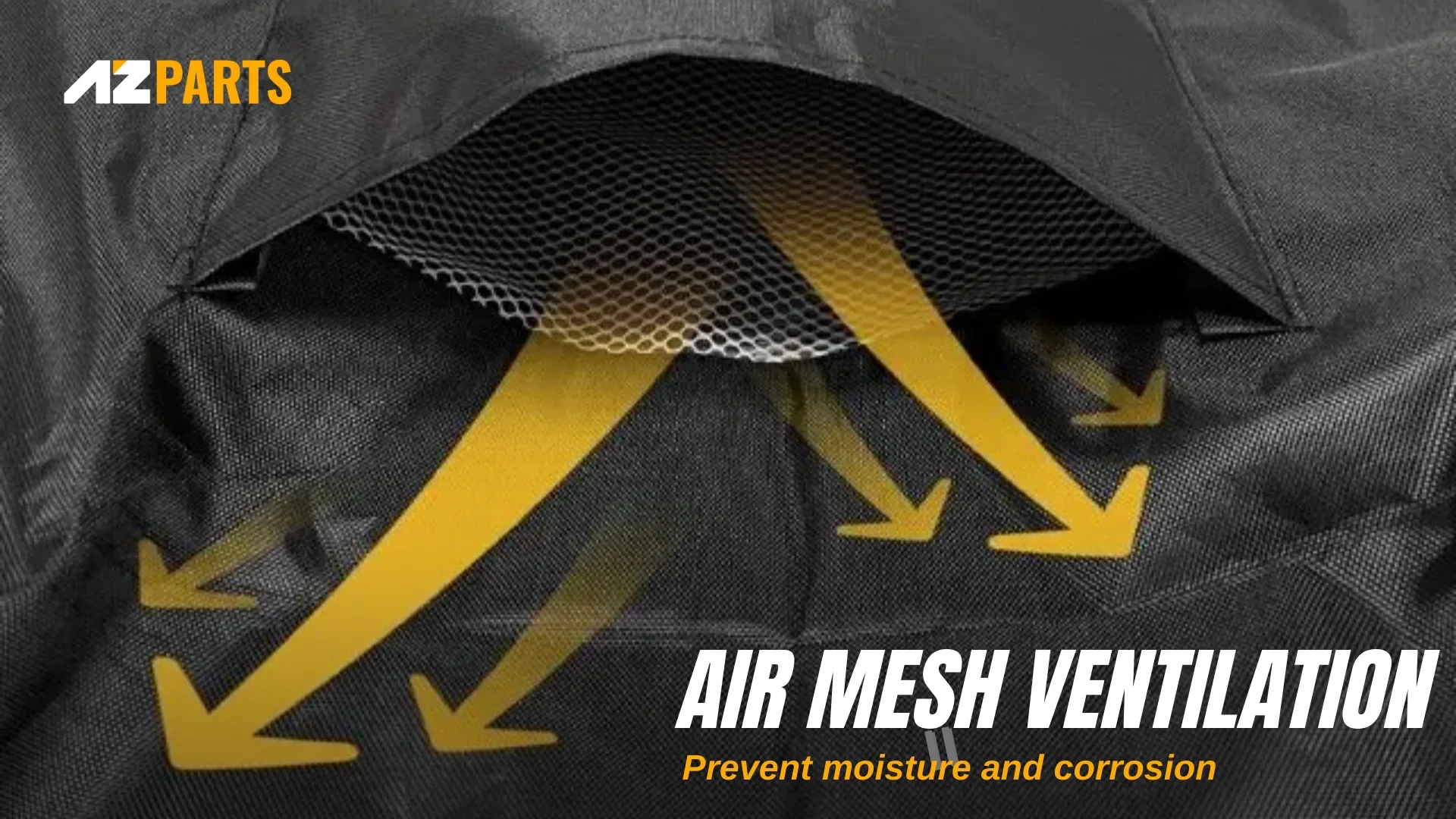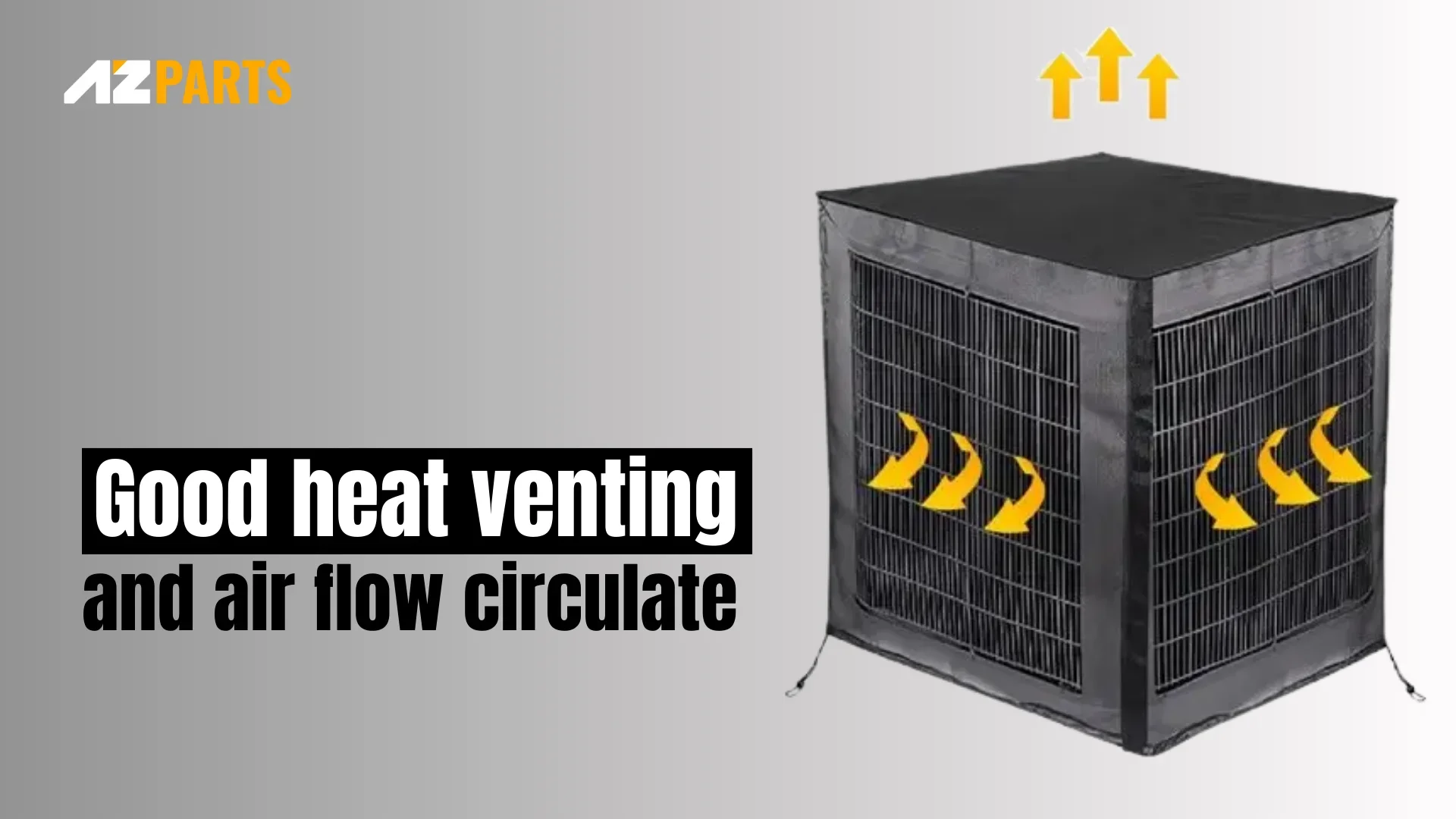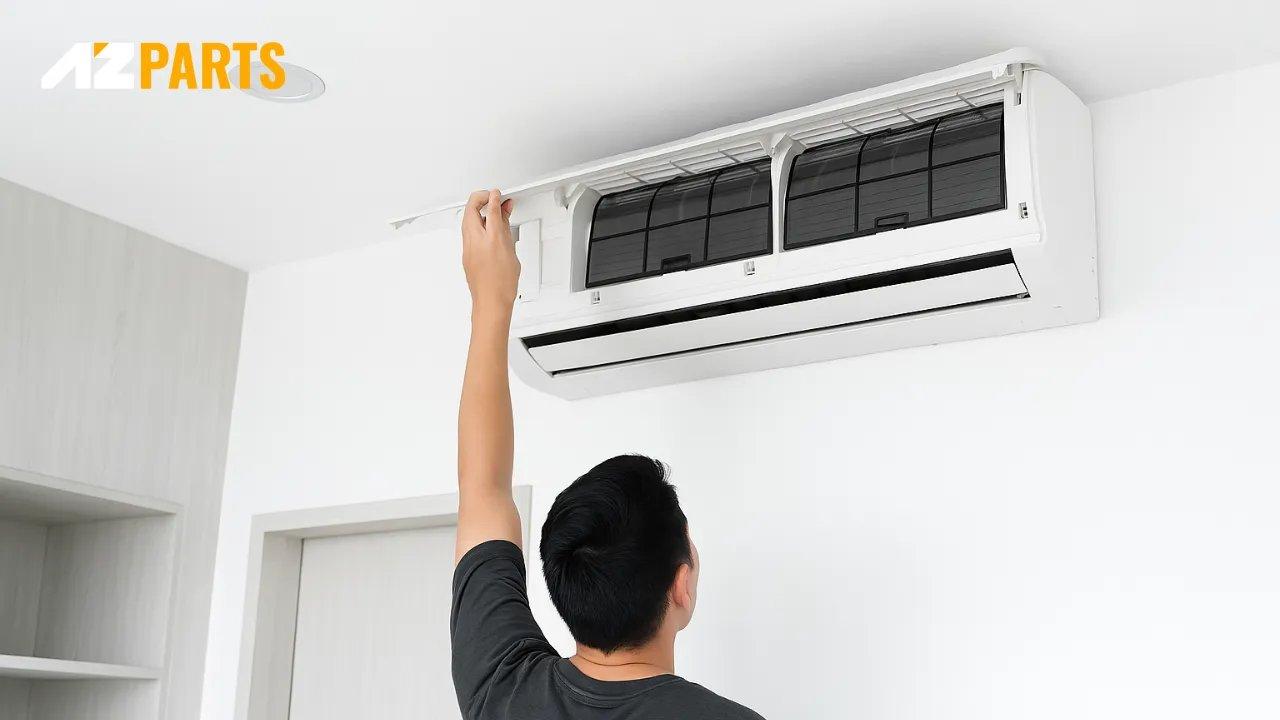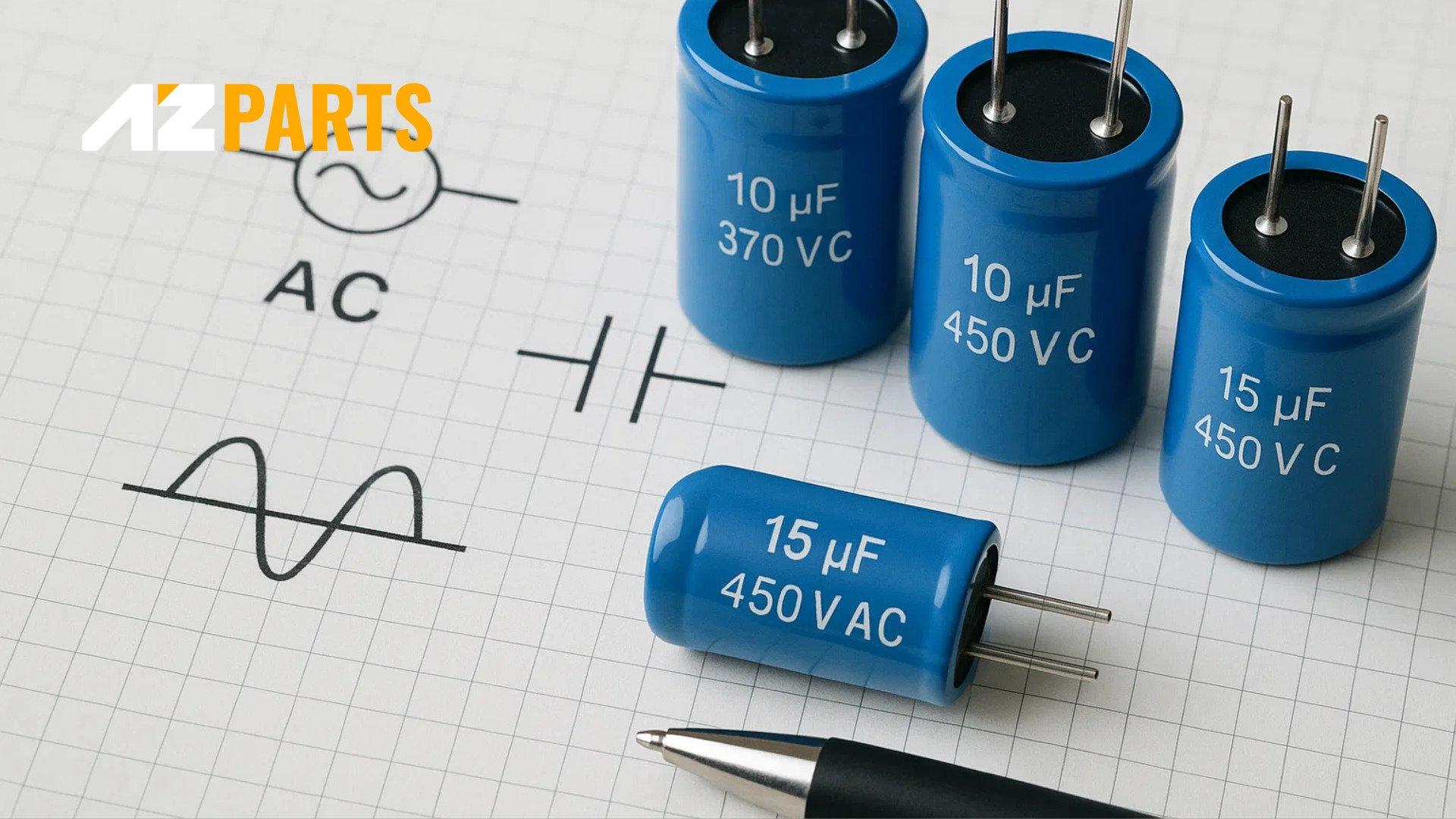Review
Should I Cover My Air Conditioner in the Winter Season?
AZparts Team
Updated on July 25, 2025
4 min read
As temperatures begin to drop, many homeowners wonder: should I cover my air conditioner in the winter? While the instinct to protect your investment is understandable, the reality may surprise you. Covering your AC might not only be unnecessary as it can sometimes cause more harm than good. Let’s explore the facts with AZParts so you can make an informed decision this winter.

1. Your AC Unit Isn’t Damaged by Snow
Modern air conditioning systems are engineered to endure harsh outdoor conditions, including snow, ice, rain, and freezing temperatures. The outdoor condenser unit is built with durable materials like stainless steel, corrosion-resistant coatings, and sealed electrical components. These features make it robust enough to handle winter without any special cover.
In fact, most manufacturers design these systems specifically for year-round exposure. So unless you're dealing with extreme environmental factors, your AC doesn’t need extra winter protection.
2. Covers Hold Moisture and Cause Mold
Covering your air conditioner with a full plastic or fabric wrap might seem like a protective measure, but it can trap moisture inside the unit. This trapped moisture becomes a breeding ground for mold, mildew, and rust, especially in humid or wet climates.
Instead of shielding the unit, the cover may actually accelerate the deterioration of internal components, including coils and wiring. In short, a cover might do the opposite of what you intend - reducing your AC’s efficiency and longevity.

AZParts’ air mesh ventilation (Source: AZParts)
3. Covered AC Systems Can Host Animals
During winter, small animals like rodents are constantly looking for warmth and shelter. A covered AC unit provides a perfect hideout. Once inside, critters can chew through insulation, wires, and tubing, causing extensive internal damage and expensive repairs.
Removing a nest come spring isn't just a hassle because it can also pose health risks. If you do choose to use a cover, it's crucial to check regularly for signs of animal activity.
4. A Winter Cover for AC Units Restricts Airflow
It may not happen often, but if your AC or heat pump is accidentally turned on while still covered, the restricted airflow can cause the compressor to overheat, leading to potential system failure. Air conditioners need ventilation, even in the off-season.
This risk is why many HVAC professionals advise against using full covers unless absolutely necessary. A restricted system is not just inefficient—it’s vulnerable to breakdowns.

Robust airflow from air conditioner using AZParts’ covers (Source: AZParts)
5. When Should You Cover Your Air Conditioner?
There are a few specific situations where a partial, breathable cover might be beneficial:
- Falling debris: If your unit sits beneath trees shedding leaves or acorns, a top-only cover can help keep debris out of the fan area. This prevents drainage clogs and ensures easy springtime startup.
- Salt exposure: If your AC is near a driveway or road treated with salt during snow season, a cover can shield it from corrosion. In this case, opt for a side-shielding solution, but ensure it's breathable.
- Overhanging icicles: If icicles form above your unit, protect it with a sheet of plywood placed on top. This simple shield deflects falling ice without enclosing the entire unit.
If you are seeking added production, AZParts offers high-quality and breathable air conditioner covers designed to shield your AC from debris, corrosion, and winter hazards without compromising airflow.
- 30"x30"x32" Central Air Conditioner Covers
- 36"x36"x39" Black Central Air Conditioner Covers
- 24"x24"x30" Central Air Conditioner Covers (Black)
- 2 in 1 Central Air Conditioner Cover for Outside Units 32"x32"x36"
- Window Air Conditioner Cover Indoor
6. How to Cover Your Air Conditioner Properly?
If you decide your situation justifies covering your AC, follow these best practices to avoid doing more harm than good:
- Use a breathable, water-resistant material: Avoid airtight plastic wraps.
- Cover only the top of the unit: Leave the sides open to allow airflow.
- Avoid DIY tarps or garbage bags: These trap moisture and invite pests.
- Remove the cover in early spring: Don’t forget to uncover the unit before turning it on.
Better yet, focus on preventive maintenance. Schedule professional inspections, keep the area around the unit clear of debris, and regularly check for signs of wear. These simple steps often provide more protection than a cover ever could.
Consequently, should you cover your air conditioner in the winter? For most homeowners, the answer is no. Modern air conditioners are built to handle winter weather. In fact, full covers can cause mold, attract pests, and interfere with airflow. If protection is necessary, use a breathable, top-only cover and focus on regular maintenance for long-term durability.
At AZParts, we believe in keeping your appliances running at their best year-round. In addition to AC covers, we also provide a wide range of air conditioner replacement parts, including compressors, condenser coils, evaporator coils, air conditioner piercing valves, air conditioner port adapters, thermostats and air conditioner capacitors, which are selected to ensure peak performance and reliability.
Discover more tips to prepare your air conditioner:
- How to discharge an air conditioner capacitor
- How to clean air conditioner filter
- Winterize air conditioner
Contact Info
Address: 8 The Green, Ste A, Dover, Delaware 19901-3618, United States
Email: support@azparts.com
Air conditioner
Further Reading
Further Reading





